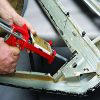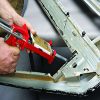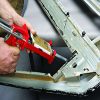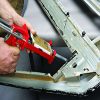Adhesives and Sealants
Showing 13–24 of 55 results
-
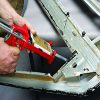
This AMS-3276 specification covers five classes of a fuel-resistant polysulfide (T) sealing compound supplied as a two-component system. This sealing compound has been used typically for fuel tank sealing, cabin pressure sealing, and aerodynamic smoothing, but usage is not limited to such applications. It can be used for faying surface sealing, for wet-installation of fasteners, for overcoating fasteners, sealing joints and seams, and nonstructural adhesive bonding. This room-temperature curing sealing compound can be used in fuel areas as well as nonfuel areas. Curing of this material can be accelerated at higher temperatures. Prior to applying this fuel tank sealant, the bond surfaces should be treated with AMS 3100 adhesion promoter to enhance sealant adhesion. This materials is usable from -65 to 250 degrees F (-54 to 121 degrees C), with short-term exposure (approximately six hours) to 360 degrees F (182 degrees C).
-
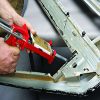
This specification covers two types and three classes of a fuel resistant polythioether sealing compound supplied as a two-component system. This product has been used typically in aircraft integral fuel tanks for repair of fillet and fastener seals and faying surface seals as well as for initial sealing of faying surfaces, overcoating of fasteners, and sealing of seams and joints, for service from -65 to +320 degrees F (-54 to +160 degrees C), with short-term (six hours) exposures up to 360 degrees F (182 degrees C), but usage is not limited to such applications. Not for use on aircraft windshields and canopies. Sealing compound must be applied at temperatures above 50 degrees F (10 degrees C), but will cure at lower temperatures.
-
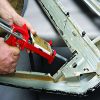
This AMS-5284 specification covers a polysulfide sealing compound with low adhesive strength. This elastomeric compound shall be supplied as a two-component system which cures at room temperature. This compound has been used typically for sealing aircraft access doors and accessories where gaskets are required, but usage is not limited to such applications. The sealing compounds are resistant to jet fuels and high aromatic aviation gasolines and are usable from -67 to 250 degrees F (-54 to 120 degrees C).
-
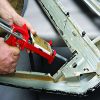
This MIL-A-46146 specification covers three groups of one-part, room temperature-vulcanizing, non-fuel resistant, silicone compounds which cure to durable, rubber sealants and adhesives upon contact with moisture in the air. This specification also covers primers for use with the silicone compounds.

